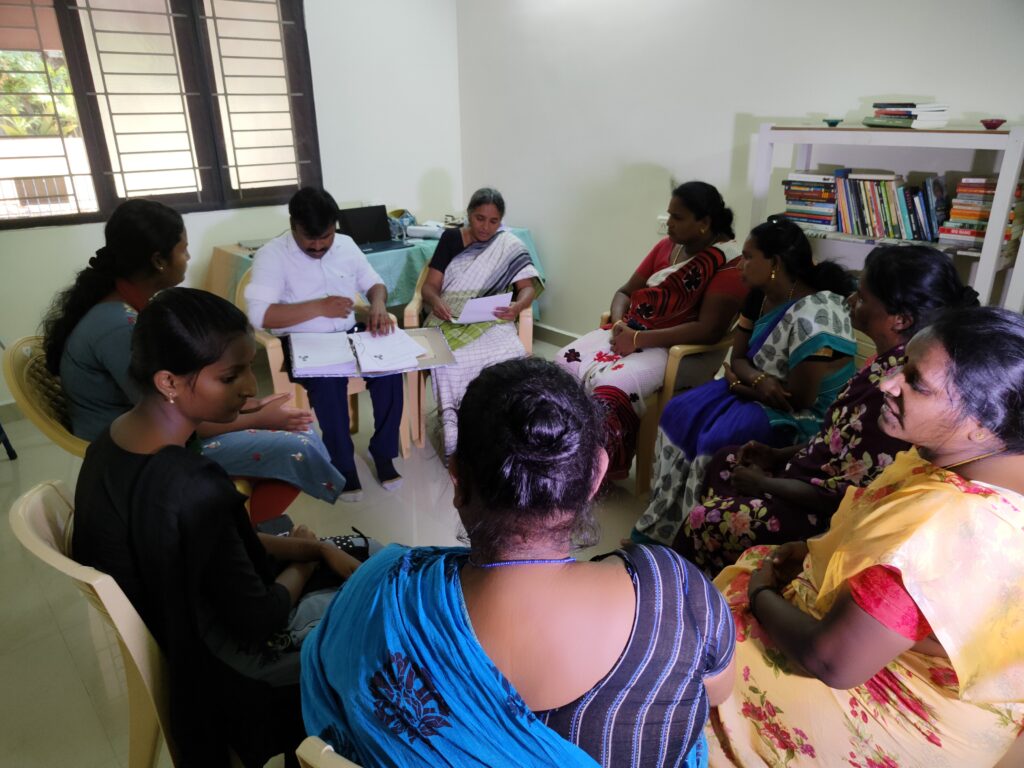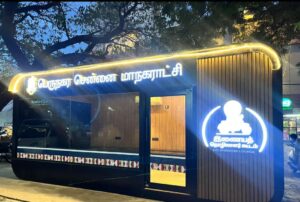
IIT Madras’ Tech Could End Manual Scavenging

Nagammal, a widow of a person engaged in manual scavenging has now turned into an entrepreneur, owning a robotic machine HOMOSEP worth 20 lakh rupees that cleans septic tanks without manual intervention inside. Now she’s learning to operate the machine at a workshop in IIT Madras where the machine was developed. She’d also give employment to two others.
Her husband Kannan died twenty years ago inhaling poisonous gas while cleaning a septic tank in Chennai. Tragedy struck when he entered the tank to clear the hardened sludge. A mother of two daughters, life has been so difficult for Nagammal who earns her living working as s housekeeping staff. She told tellmystory.in “Looking at the drilling technology for the metro rail, I’ve always thought why not a technology to clean septic tanks. My husband wouldn’t have died then. Now I am happy I am getting the first machine.”

The machine mounted on a tractor has a robotic arm which can perform a series of manoeuvres to crush the solidified sludge, mix it and pump it out, completely doing away with manual entry. Prof Prabhu Rajagopal from the Department of Mechanical Engineering at IIT Madras said “Every district should have women self help groups with these vehicles and they should be given these contracts. In course of time the stigma would be broken and other communities too would vie to take this up to earn their livelihood”.
More than 900 individuals engaged in manual scavenging have died across India since 1993 while cleaning septic tanks. Activists say the number could be much higher as many cases went unreported.
Over the decades people from a few scheduled castes were pushed into manual scavenging, in conditions that defy human dignity and human rights. Safai Karamchari Andolan, a nationwide NGO working with these communities had commissioned IIT Madras for a technology to end this violation. The NGO is now empowering widows of victims who died while cleaning septic tanks to take this up as an enterprise. Deepthi Sukumar, member of the national core team says “Owning and operating this scientific technology for these communities is a huge history. It would transform their life. This would also help them to break out of the caste barrier as it’s a caste based occupation”.

At Chennai’s Selaiyur where Ms Deepthi works, women who had lost their husbands in septic tank tragedies and women self help groups from the community are actively joining hands to turn entrepreneurs for a new lease of economically empowered life. A group of three women become partners and they are working on to avail loans for this. Separately, the IIT Madras team too helps the teams by securing CSR funds from corporates for the cause. Ruth Mary another widow said “I am happy about this opportunity which could end manual scavenging. Had this been there a decade ago I wouldn’t have lost my husband. This would also empower us economically”.
Solinas, the start up behind this launched by students and a faculty member at IIT Madras had developed this with inputs from those working on the ground. Now it’s also working on a compact model. “We are incorporating the vehicle with the robot, suction system and more importantly storage space so the sludge pumped out can be stored and emptied at designated places. The owners need not hire a vehicle for this and this would increase their income too” said Divanshu Kumar, the CEO.
Experts also want local bodies including municipalities and corporations to adopt this kind of technology and nurture these women. This they hope would help end manual scavenging sooner as well.
Check our website www.tellmystory.in
Follow our socials for more inspiring stories —
YouTube: https://youtube.com/channel/
Hoote: https://hoote.page.link/
Instagram: www.instagram.com/tellmystory.
Twitter: www.twitter.com/tellmystory__
Facebook: www.facebook.com/tellmystory.

Tell My Story
Related News


Are You Overthinking the Negative What Ifs?

The Faces of Him



It’s Messy, But It’s Healing

Sacred Stay – The Soul’s Last Touch

Uncertainty Is Where the Magic lives

Chennai’s Chill Zone for Delivery Champs
Recent Stories


Are You Overthinking the Negative What Ifs?

The Faces of Him




